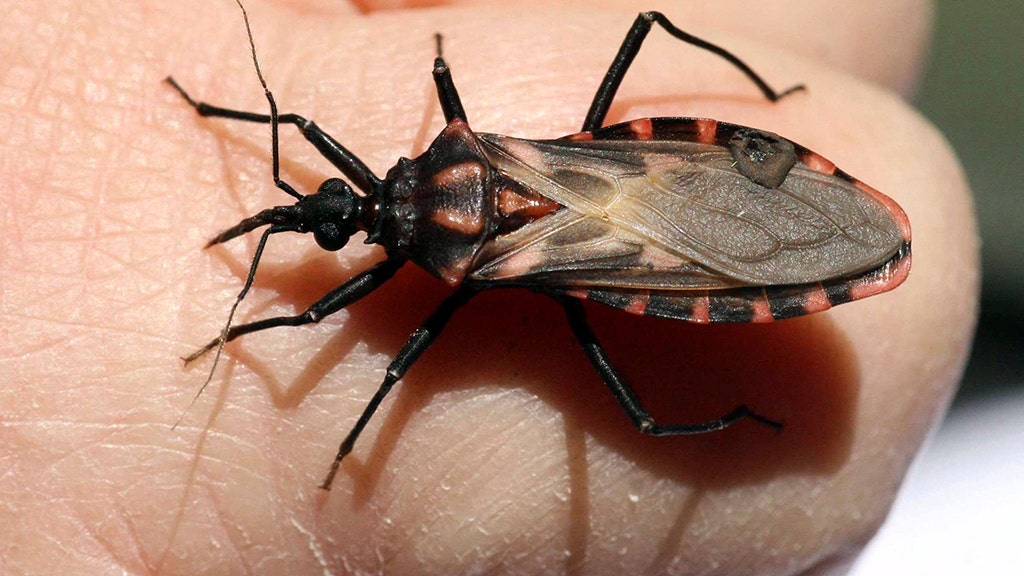Deadly ‘kissing bug’ that kills thousands needs to be taken seriously now

It’s the kiss of death for Latin American communities in the U.S.
While health experts often warn of mosquitoes and other disease-carrying bugs, the deadly kissing bug — a k a the triatomine bug, which kills 10,000 people per year globally — continues to be overlooked in the U.S., as it disproportionately affects poor Hispanic communities. That alarming disparity is the subject of the new book “The Kissing Bug: A True Story of a Family, an Insect, and a Nation’s Neglect of a Deadly Disease.”
Apparently, not even the infectious disease world is immune to racism.
“[The disease] was still very much being neglected by medical schools, medical institutions and public health officials, that was such a shock,” author Daisy Hernández told NBC of the shocking find.
The Colombian American’s first experience with the scourge came when her aunt died from complications of Chagas disease, a parasite spread by the kissing bug. (Its colloquial name is due to its habit of biting sleeping victims on their faces, according to USA Today.) Most fatalities are caused by the Chagas parasite ravaging the patient’s heart and digestive system.
In light of the horrific event, Hernández has made it her mission to cover every facet of the disease.
NEW YORK SHARK SIGHTINGS PROMPT NEW FLAG WARNINGS AT BEACHES
First discovered in 1909 by Brazilian physician Carlos Chagas, the ailment has a fraught history in the U.S. “Kissing Bug” details a beastly experiment in the 1940s, in which a Texas researcher purposefully planted kissing bugs on a young Black psychiatric patient in order to study Chagas’ effects.
Today, the underreported affliction affects 300,000 people in the U.S., predominantly Latin American immigrants in Texas, California and Florida, NBC reported. Unfortunately, as there is no national surveillance program, it’s unclear where people are most affected by Chagas in this country.
“Chagas disease is a disease of inequity,” lamented Dr. Norman Beatty, a University of Florida medicine professor who has been studying Chagas since 2015.
The parasitic condition is also not a high priority in the medical community, according to Dr. S. Wesley Long, medical director of microbiology at Houston Methodist Hospital. He explained that physicians are taught that “When you hear hoofbeats, think of horses, not zebras,” he told USA Today. “Chagas is a zebra.”
That apparent lack of attention — and data — is particularly problematic given the insidious nature of the disease, which can spread from person to person via everything from organ donations to blood transfusions, the CDC reported. Mothers can even infect their babies with Chagas during pregnancy.
In addition, many victims aren’t even aware they’ve contracted Chagas, as they don’t exhibit any symptoms. Or if they do, they often entail “fever, fatigue, enlarged lymph nodes” and other “flu-like” symptoms that will dissipate quickly, providing no indication that the parasite is still coursing through their system, according to Beatty.
When it finally manifests, the effects are usually cataclysmic, with 20% to 30% of patients experiencing cardiac and gastrointestinal complications — as was the case with Hernández’s aunt.
Anti-parasitic drugs can help prevent the spread but only if the infection is detected early.
CLICK HERE TO GET THE FOX NEWS APP
That can be a tall order given the lack of health care access in many Latin American immigrant enclaves — not to mention that Latinos have the highest rates of uninsured people among any racial or ethnic group, which can prove disastrous for low-income Chagas sufferers, NBC reported.
Hernández cites the case of 40-year-old Carlos, whose Chagas-induced heart condition kept him from holding down a job. However, in a vicious catch-22, he was forced to keep working to pay his outstanding medical bills.
It’s not only about “getting access to health care,” explained Hernández. “It’s also being able to take time off from work to go to an appointment, to go to multiple appointments.”
Click here to read more on the New York Post.




